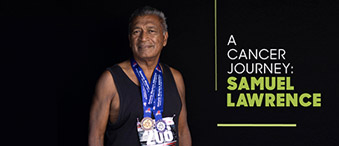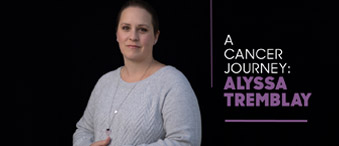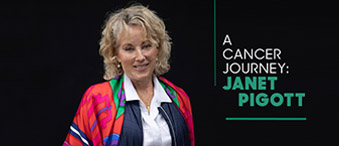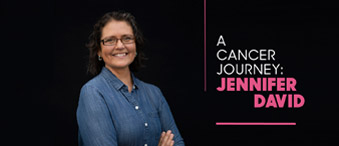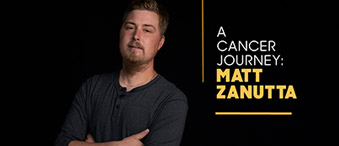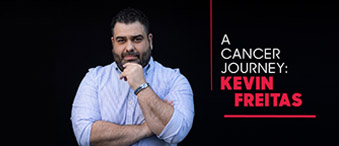A CANCER JOURNEY
Look forward. Move ahead. Cycle through cancer
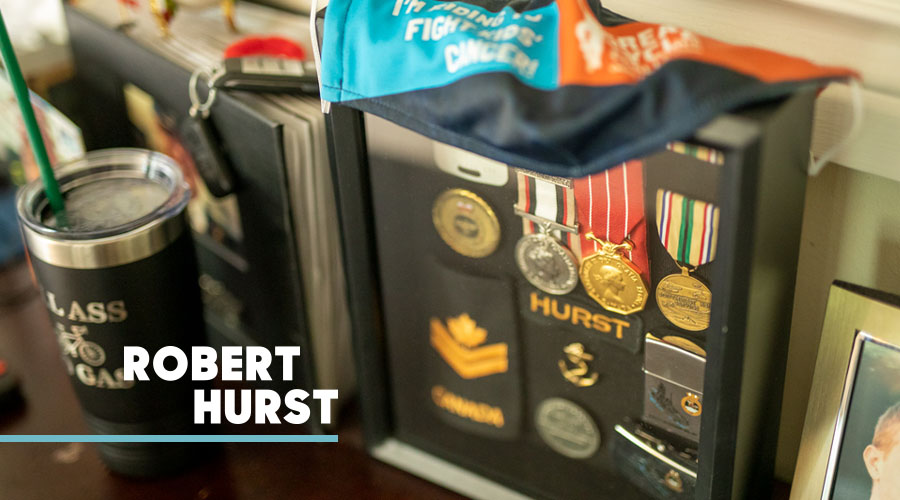
Look forward. Move ahead. That’s the motto Robert Hurst lives by — no matter what challenges life throws his way.
Forced into early retirement from the Canadian Navy after he suffered significant injuries in a cycling accident, Robert moved to Ottawa in 2007 and started a new career in the technology sector. It wasn’t until 2015 when he would overcome his mental fear of cycling — in fact, cycling played a critical role helping him through a new healthcare hurdle he would soon face.
In late 2017, Robert was diagnosed with a cancerous tumour inside his mouth on his right cheek. Within three months, he had surgery to remove the tumour that had tripled in size. “It went from the size of a marble to a robin’s egg,” explains Robert.
The recovery from the surgery took a greater toll on Robert than anticipated. Once he was ready, he began radiation treatment. It was a difficult and sometimes painful time for Robert, but he credits our Cancer Centre for guiding him through each treatment. “The dietitians, physiotherapists, and the psychologists, I talked to them all. It was like having a small family group in the hospital — they really helped me get through the major parts of radiation. There was a period of time when I couldn’t eat anything solid — it was like swallowing razorblades.”
After 30 rounds of radiation, which took place five days a week for about 90 minutes, Robert had completed treatment, but his journey was far from over. The side effects from radiation resulted in bone death in his right lower and upper jaw. He had surgery in May 2021 to remove three dead teeth, but the bone wouldn’t heal so Robert started regular treatment from the Hyperbaric Unit to help heal the gums. He’s had 116 treatments in total — 30 of which happened at our hospital — to stop a bone infection in his jaw. To this day, he still has exposed bone on his rear molar on his lower jaw that he’s receiving care for by a dental surgeon at our hospital. “But that’s where the cycling comes into play,” Robert quickly adds.
What is a hyperbaric chamber?
Hyperbaric therapy involves the use of a closed chamber to create a high-pressure environment in which a patient is exposed to high levels of oxygen, the end result being an increase in the amount of oxygen in their blood. The air pressure inside the hyperbaric chamber is more than twice that of the normal atmospheric pressure, and patients are exposed to 100% oxygen instead of the usual 21% we breathe on a daily basis. Oxygen helps specifically with healing wounds, so exposing wounds to 100% oxygen can help speed healing. A session typically lasts 30 minutes to two hours.
Hyperbaric therapy has been used for decompression sickness since the 1930s, but over the years, its recognized potential in other medical applications has grown, and today, it is used for 14 specific conditions.
Despite everything Robert’s body has been through, he turned to his love of cycling to help build his muscle back up. “Before radiation, I was in really good shape, but within two months of treatment I had no muscle.” That’s when Robert decided to take back control of his body. “I bought an indoor trainer, set a goal, and by August 2019, I completed a 190 km bike ride.”
Since then, he’s logged hundreds of kilometres for different events, including THE RIDE, a past cycling fundraiser for The Ottawa Hospital.
Today, at age 50, Robert is cancer-free. However, there’s a precursor to cancer called lichen planus, which he now has in his mouth and is being monitored closely by his team at the Cancer Centre every three months.
He hopes his motto will catch on with other patients who face this disease. “Look forward. Move forward. What’s done is done. Listen to your doctors at the Cancer Centre. They will help you move forward. You cannot heal if you don’t set positive goals for yourself that is the biggest key to it all.”
He continues to set those goals for himself. “Next summer I have big plans. I’ll be travelling to Kansas for the world-famous 200-mile Unbound Gravel Bike race in June. Then in August, I have been cleared to cycle from Vancouver to Halifax.” For Robert, it’s all about looking forward.
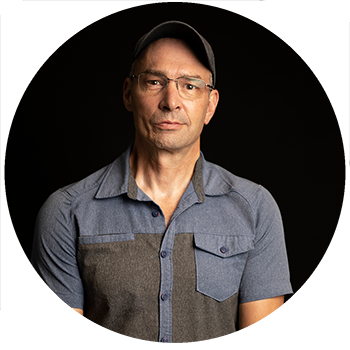
“The dietitians, physiotherapists, and the psychologists, I talked to them all. It was like having a small family group in the hospital — they really helped me get through the major parts of radiation.”
Robert Hurst
The Ottawa Hospital is a leading academic health, research, and learning hospital proudly affiliated with the University of Ottawa.


